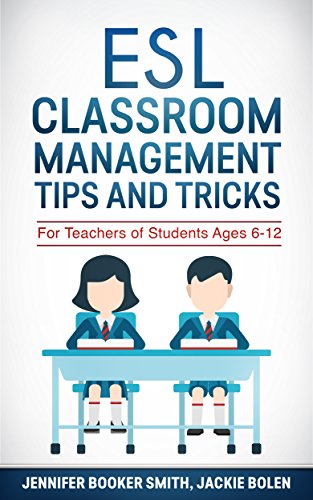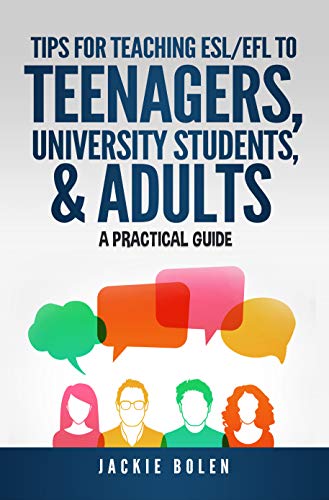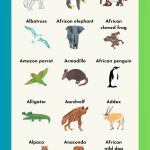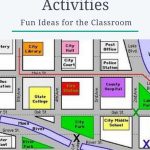If you’re looking for details about concept checking questions (CCQs), then you’re certainly in the right place. We’ll give you the rundown on how to concept check in a language class and also why it’s so important to do so. Keep on reading!

What is Concept Checking?
Concept checking is a method that teachers can use to ensure that their students have fully understood their instruction. It consists of asking simple questions (concept checking questions or CCQs) to check the student’s understanding and comprehension of the target language.
Sounds simple? In many ways CCQs are. However, they do require some planning in order to do them well and all teachers, save for the very experienced ones should even jot down a few questions into their lesson plans.
Think about the question, “Do you understand?” It’s all too common in language classes but don’t almost all students say, “Yes,” regardless of whether or not they understand? A much better alternative is to use a CCQ to ensure that students actually understand the material.
CCQ vs ICQ
Please note that CCQ’s are different than ICQ’s. An ICQ (instruction checking question) is designed to test understanding of how to do an activity. Find out more here: What is ICQ?
What is the Purpose of a CCQ?
The purpose of concept checking is to ensure that students thoroughly understand the material that has been taught, before moving on to new things, or further work on the target language. For example, there’s no point in doing controlled practice and then freer practice is students don’t understand the basic concepts.
Or, why move on to new material if students don’t have a good grasp on the material you’ve been teaching them already? It’s better for students to know a few things well than lots of stuff not really at all!
Things to Keep in Mind When Making Concept Checking Questions
Here are a few tips and tricks for concept checking to keep in mind.
Plan CCQs in Advance in your Lesson Plan
It’s easy to come up with CCQs on the fly. However, they may not be good ones!
To combat this, spend some time thinking of them when planning lessons. And then make this a step in the lesson to cover. The best time is right after presenting the target language. I also like to throw a few in at the end of class by way of review.
Concept Check Questions Should Focus on Meaning, Form, or Function
- Amazon Kindle Edition
- Smith, Jennifer Booker (Author)
- English (Publication Language)
- 86 Pages - 12/24/2015 (Publication Date)
Be sure to focus on form, meaning or function. Which one depends on the target language. For example:
Function: You must not walk on the grass. (Is it okay to walk on the grass? No).
Form: I didn’t went to school yesterday. (Is this a good sentence? No. I didn’t go…).
Meaning: The building is gigantic. (Big or small building? Big).
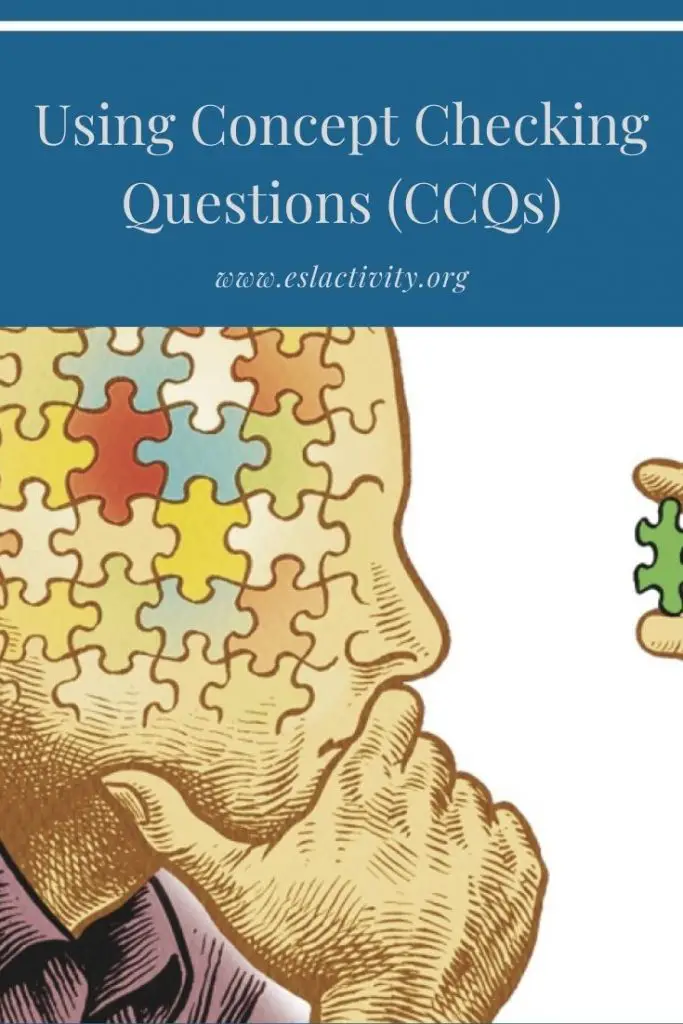
Concept Checking Questions Shouldn’t Use the Target Language
Avoid using the target language in CCQs. If students don’t understand the target language, using it again will not help to clarify meaning or function. For example:
- I was doing my homework when you called (Was I eating dinner when you called?)
- I can play soccer (Can I play soccer?)
Better questions for the above examples are:
- What happened first, homework or you calling? (homework)
- Do I like soccer (maybe? Probably yes)
Check the Language, Not the Situation
The best questions focus on the language and not the specific situation. For example, “You shouldn’t walk on the grass.” A question that focuses on the situation is:
- Why shouldn’t I walk on the grass?
A better question is:
- Is walking on the grass okay?
Think Simple for Concept Checking Questions
The point of a CCQ is to check understanding on the target language, not the understanding of the CCQ! This means that the questions should be very simple and not use overly complicated vocabulary or grammatical structures.
Even the weakest students in the class should be able to easily understand a good CCQ.
Here are some bad examples:
- I got my nails done yesterday. (Did I enlist the services of a beautician to do something with my nails?)
- I’m going to make dinner and then go to the gym tonight. (Am I planning on making something for supper, eating, cleaning up and then heading over to the fitness facility to get a difficult workout with my trainer in?)
The Best CCQs Require a Yes/No Questions or Choice Between Two Things
Think yes or no questions, simple WH questions, or a choice between two things. They should only require a 1-2 word answer from the students. I generally insist on full sentences from my students when they’re speaking in my classes. However, now is not the time to do so!
Remember that the purpose of concept checking is to ensure students understand the material.
Other Ways to Check Understanding
Besides the things just mentioned above, there are a few other ways to check if students have understood the material:
- Use timelines for verb tenses. However, these are not a substitute for CCQs but they are helpful in assisting with understanding.
- Truth lines for probability (can’t be, must be, etc.)
- Reality lines for conditionals
- Pictures to distinguish between similar things
- Negative checking (I were?)
- Translation (not always helpful or possible)
When do Teachers need to Use CCQs?
There are a number of points during a lesson when it’s possible to use them. I like to sprinkle them liberally throughout!
However, the time when I would consider it mandatory is after presenting the new material and before students start doing controlled practice with it.
I also like to ask some of these questions if I discover during the practice phase of the lesson that students are having a difficult time grasping the form, function or meaning of the language.
Finally, it’s also possible to use them at the end of the lesson for a quick review.
A quick note. If you share a common language with the students (a Korean teacher teaching all Korean students), then it may be simpler to do this kind of thing in your shared first language. However, if you don’t share a common language, then CCQs are the best way to make sure students actually understand the material.
Concept Checking Example #1:
Here’s an example:
Tony and Kerry live in a two-bedroom apartment.
- Who lives there?
- How many bedrooms are there?
- Is there 1 person who lives there?
- Are there 3 people living there?
- When did they move there?
Concept Checking Questions Example #2:
Here’s another example:
Oh wow! They’re painting that building.
- Is it happening now?
- Can you see it?
- Is the painting finished?
- Are they painting now?
- Who is painting?
- Is it past, present or future?
CCQ Example #3:
A final example:
If I won the lottery, I’d buy a new house.
- Did I win the lottery?
- Am I going to win the lottery?
- Am I going to buy a new house?
- Have I bought a lottery ticket?
- Will this happen?
Did you like Learning About CCQ Questions?
- Amazon Kindle Edition
- Bolen, Jackie (Author)
- English (Publication Language)
- 134 Pages - 02/23/2020 (Publication Date)
Yes? Then you’ll love this book on Amazon: Tips for Teaching ESL/EFL to Teenagers, University Students and Adults. The key to better English classes is a series of simple things and this book will help you get there in style.
You can find the book in both digital and print formats. Get your copy today if you’re serious about having better TEFL classes:
FAQs
There are a number of common questions that people have about using CCQs in the classroom. Here are the answers to some of the most popular ones.
How should CCQs be formulated?
CCQs should be concise, clear, and focused on the core concepts. They should require a brief response that demonstrates students’ understanding rather than a simple “yes” or “no” answer.
When should CCQs be used in the lesson?
CCQs can be used at various points during a lesson, such as after introducing a new concept, during a discussion, or at the end of a lesson to assess overall understanding.
How can CCQs be adapted for different learning styles?
CCQs can be adapted by using different formats, such as visual aids, hands-on activities, or real-life examples, to cater to different learning styles and enhance students’ comprehension.
How can CCQs be used to address misconceptions?
CCQs can help identify misconceptions by asking specific questions that challenge students’ existing beliefs. By addressing these misconceptions through targeted CCQs, teachers can promote accurate understanding.
Can CCQs be used for formative assessment?
Yes, CCQs are an effective formative assessment tool as they allow teachers to monitor students’ progress, provide immediate feedback, and adjust instruction accordingly.
Are CCQs suitable for all grade levels?
Yes, CCQs can be adapted to suit different grade levels and subject areas. The complexity and depth of the questions may vary, but the basic principle of checking understanding remains the same.
Tips for Using Concept Checking Lessons in Language Classes
Using Concept Checking Questions (CCQs) is an effective technique to ensure understanding and check comprehension in language classes. Here are some tips for using CCQs effectively:
Plan ahead
Before the lesson, identify the key concepts or language points that may require clarification. Prepare a list of targeted CCQs to check understanding. This will help you organize your questions and ensure you cover all the necessary points.
Keep concept checking questions simple and clear
Concept checking questions should be concise and easy to understand. Use simple language and avoid complex or ambiguous questions that may confuse students further. Ensure that they focus on the specific concept or language point you want to check.
Use both closed-ended and open-ended questions
Closed-ended questions, which can be answered with a simple “yes” or “no,” are useful for checking specific details or facts. Open-ended questions allow for more extended answers and help you gauge students’ understanding in more depth.
Use visual aids and real-life examples
Use visual aids, props, or real-life examples to support your CCQs. These visual and concrete references can help students visualize and better comprehend the concepts you are checking.
Pace your questions appropriately
Give students sufficient time to process and respond to Concept checking questions. Avoid rushing through the questions or providing the answers too quickly. Allow for thinking time and encourage students to provide their responses before confirming the correct answer.
Encourage student participation
Involve all students in the CCQ process by encouraging them to actively respond to questions. Use pair or group work to allow students to discuss and share their answers before giving the whole-class response. This promotes active engagement and peer learning.
Adjust the level of difficulty
Adapt your CCQs to the proficiency level of your students. Start with basic, straightforward questions and gradually progress to more complex and challenging ones as students demonstrate understanding. Differentiate your CCQs to cater to the needs of individual learners or groups.
Provide feedback and clarification
After students respond to CCQs, provide immediate feedback and clarification. Correct any misconceptions, reinforce correct answers, and explain any points that still need further understanding. Use this opportunity to address any remaining doubts or questions.
Use CCQs throughout the lesson
Incorporate CCQs at various stages of the lesson, including introducing new concepts, reviewing previous material, or checking comprehension after practice activities. Regularly using CCQs ensures ongoing monitoring of student understanding and helps identify areas that need further attention.
Be flexible and adapt as needed
Be flexible in your use of CCQs. If students are struggling to understand a concept or language point, be prepared to rephrase or provide additional examples to facilitate comprehension. Adjust your approach based on students’ responses and adapt the CCQs accordingly.
Have your Say about Concept Check Questions
Do you have any tips or tricks for using CCQs when teaching new grammar or vocabulary to English learners? Leave a comment below and let us know about it. We’d love to hear from you.
Also, be sure to give this article a share on Facebook, Pinterest, or Twitter. It’ll help other busy English teachers, like yourself find this useful resource.

Last update on 2022-07-17 / Affiliate links / Images from Amazon Product Advertising API
